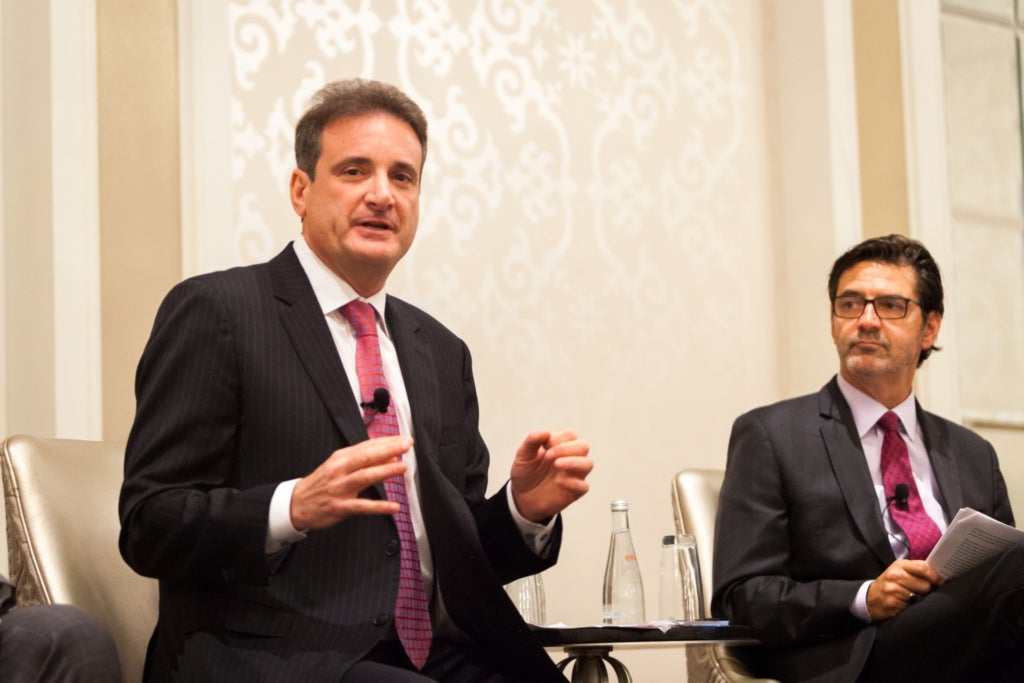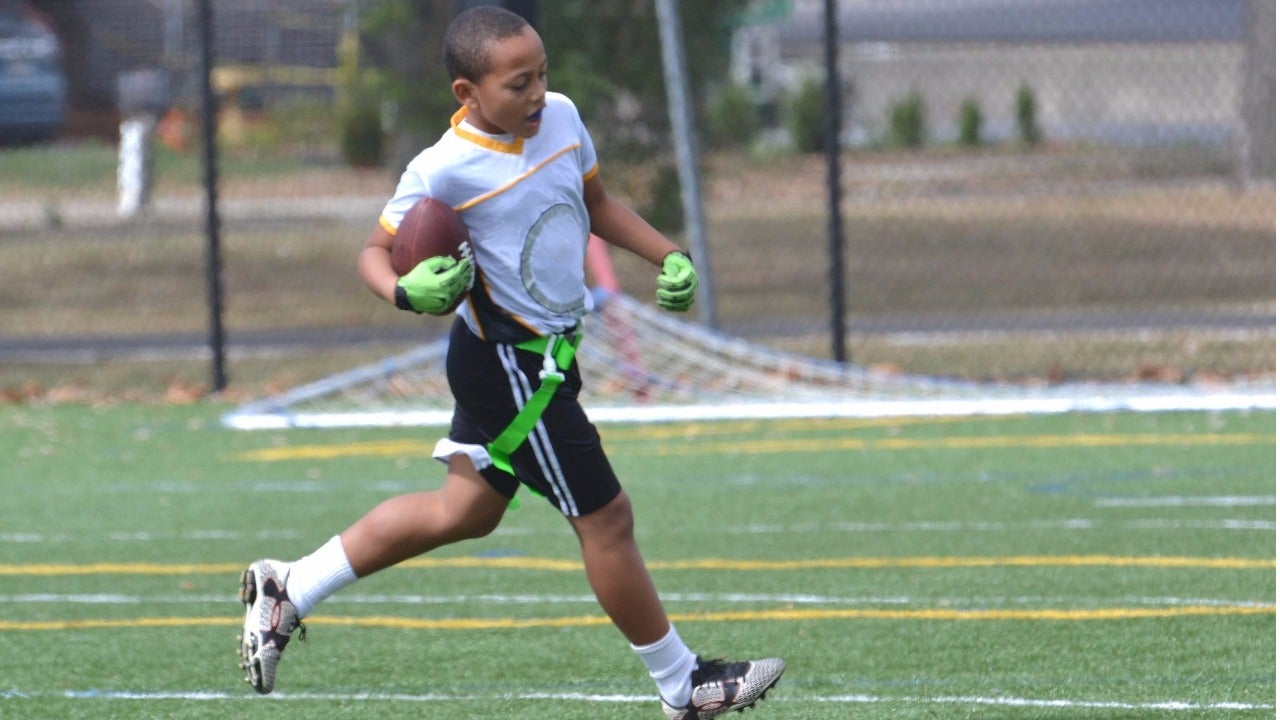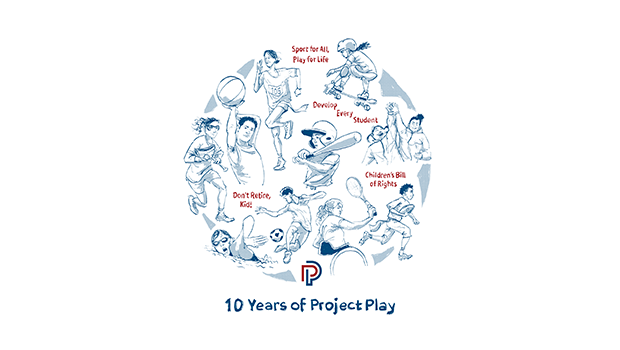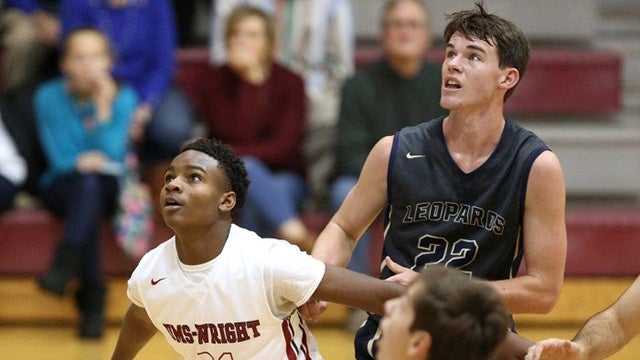In May, the Supreme Court overturned a 25-year old federal law, the Professional Amateur Sports Protection Act (PASPA), that prohibited sports betting in every state except for Nevada. With the legalization of sports betting, states are moving swiftly to explore the opportunity to enter the lucrative industry. Since May, four more states – Delaware, New Jersey, Mississippi, and West Virginia – have introduced this form of gambling. As more states enter the market, an essential question to consider: How can sports betting serve the public interest?
The Aspen Institute Sports & Society Program took on this question to discuss possible solutions by convening experts from gambling, law, politics, professional sports, and health and fitness for our “Future of Sports Betting” conversation on Sept. 14, as part of our Future of Sports conversation series.
During the two-hour discussion at the Fairmont Hotel in Washington, DC the six panelists and two moderators helped to identify a path forward on ways sports betting can reimagine its public value for the good of society. Read coverage by USBETS here, an op-ed by Aspen Institute Sports & Society Program Executive Director Tom Farrey here, and research on other countries’ experience with sports betting here.
Below are highlights from the conversation.
MLB Shares its Position
Now that sports betting can be legalized in all US states, this will have massive effects on professional sports. As a creator of the sporting events that influence gambling, pro sports leagues want a cut of the action through a small “integrity fee” from gambling revenues.
“[The sports betting] industry, is 100 percent entirely reliant on the sports leagues to create the events on which the bet takes,” said Morgan Sword, Major League Baseball senior vice president. “So, we think it’s reasonable that the league that is spending all this money to create the events on which the bets are happening, receive some small compensation from the casino that’s offering the bet.”

Morgan Sword, Keith Whyte, Laila Mintas, and James Kilsby
Sword added that other countries have similar models where the sports leagues are receiving compensation. From MLB’s perspective, “it’s good policy,” Sword said.
Right now, out of the five states that offer sports betting, none pay royalties to the leagues. Despite the 0-for-5 start, Sword remains hopeful that an integrity fee will be granted in other states.
“There’s legitimate arguments on both sides … whether or not legalized sports betting is a good thing, in aggregate, for the country,” Sword said. “It no longer matters what our position is on that, because it’s here. So rather than hand-wringing around whether we are for it or against it, we decided that we would do everything we could to study the countries around the world that offer sports betting and [find out] the absolute best way to do this.”
Central Sports Betting Portal
To ensure the integrity of the games, gaming and sports law attorney Daniel Wallach said there is a need for an integrated integrity sports platform. The platform would be a central portal for information sharing on bets by all of the gambling states.
Such a platform would track possible “match-fixing” and in real-time that would help lead to arrests. Ohio state Senator Bill Coley, president of the National Council of Legislators from Gaming States (NCLGS), agreed in theory about the suggestion, but doesn’t foresee this type of platform being mandated on the federal level. He argued that states could work together to create a portal.
Funding Youth Sports Through Sports Betting
Tom Cove, CEO of the Sports & Fitness Industry Association, made the case that the revenue from sports betting should go towards youth sports and physical fitness. Data show that household income is a major factor in whether children are physically active and play sports.
“We have a public policy imperative and there’s a public policy solution here, and there are many historical and particularly current analogies that suggest that we could take resources from this need,” Cove said. “There is a logical and moral relationship between sports betting and youth sports.”
Norway and China have models of using sports betting and lottery revenue to fund youth sports. In the United States, Colorado uses its lottery revenue to be distributed in three ways – 50 percent goes to the Great Outdoors Colorado Trust Fund, 40 percent goes to the Conservation Trust Fund, and 10 percent to Colorado Parks and Wildlife. Cove encourages states to develop funding priorities around sports betting and use Norway, China, and Colorado as models.
Aiding Gambling Disorders
Keith Whyte, executive director of the National Council on Problem Gambling (NCPG), brought a unique perspective to the discussion by focusing on finding solutions to help bettors with gambling problems and prevent new bettors from creating bad habits. Still, Whyte mentioned that NCPG is neutral on legalized gambling and hopes to work with all stakeholders – professional sports leagues, states, and bettors.
Nevada only started receiving public funding in 2005 for problem gambling programs, Whyte said. All those years prior, “the gambling capital in America did not put a single cent of public money into problem gambling programs,” he said. “Most of the states that have legalized so far have followed suit. So, we’ve got a fundamental baseline problem here.”
Like Sword, Whyte is dissatisfied with the pace of legalization to adopt some of the methods that the NCPG is advocating for, but he remains hopeful that some of the populous states will build a strong framework soon.
Mobile Gambling Is the Future
The future of sports betting is in mobile and online, and the casinos ought to get ready. “Online is king,” said Wallach, a gaming and sports law attorney. Wallach said that to maximize revenues, casinos for sports betting must have a mobile and online presence.

Daniel Wallach and Tom Farrey
Right now, New Jersey is leading the market with eight online sportsbooks, and the state expects more to become available. The other states that offer sports betting are following the brick-and-mortar method.
The experience that New Jersey has with online casino gaming over the past five years is helping the state stay ahead of the pack. And the true value of the mobile and online sports betting presence will be its impact after one month of the NFL season.
Professional sports leagues like MLB and the NBA support mobile and online betting too. Sword thinks that such a platform will be good to control and monitor the books since a “paper trail” would now be in an electronic format.
“When you walk into a sportsbook and you make a bet at a window, we have no information about who you are, what other bets you’ve made,” Sword said. “And, when you’ve been making a bet on a mobile phone, we know a lot more than that. And, our ability to combine information, across bettors, across casinos, across states is dramatically improved.”
Dr. Laila Mintas, deputy president of Sportradar US, said it’s very important to have a mobile presence because, “people want to place a bet no matter where they are and whenever they want to do it.” In the UK, around 70 percent of betting is done on mobile. If the US lacks mobile options for bettors, they will continue to wager offshore, Mintas said.
Collective Action Among Key Stakeholders
The NCPG has been in talks with MLB and other pro sports leagues about a possible partnership to combat compulsive gambling. “This could be like the United Way [commercials],” Whyte said. “There could be major league stars saying, ‘Hey, bet with your head, but not over it.’”
Another collaborative effort could be between the leagues and the sports betting operators on the different types of sports betting to include.
“Smaller bets that happen during the course of the game … the first pitch of the game [being] a ball or a strike – that is problematic for us, because it’s very easy for an individual player to manipulate the outcome of that bet and very hard for us to detect,” Sword said.
A sports betting operator offered bets on this year’s Home Run Derby, which was won by Washington Nationals outfielder Bryce Harper over the Chicago Cubs’ Kyle Schwarber. There were some questions on whether Harper’s batting practice pitcher threw some pitches too quickly – and against Home Run Derby rules – in order to catch up and win the contest.
Those who placed a bet on Schwarber became furious and blamed the MLB on social media. “If anyone asked us, we would tell you don’t offer bets on the home run derby,” Sword said. “It’s an exhibition event that’s meant for people to enjoy and have fun.”
Biggest Winners and Losers as Sports Betting Expands
Five years from now, who will be the biggest winners and losers as sports betting expands? Predictions varied across panelists, with the leagues perhaps seen as the biggest winners should sports betting be structured well. Cove, meanwhile, focused on the revenue it could produce for defined public purposes, such as building healthy kids and communities through community sports and recreation.
“States that institute programs to deliver back for the generations in perpetuity, focused on a social good, particularly for physical activity and health of kids [will be a winner],” Cove said.
You can read a full transcript of the event here: Future of Sports Betting Transcript


